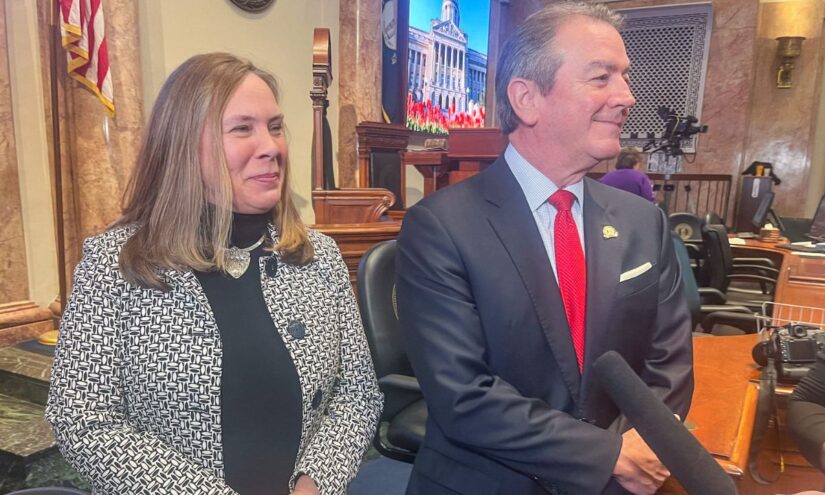Reflecting on the tenets that shape our educational practices is fundamental for …
Kentucky Proposal Aims to Allocate Public Funds for Non-Public Schools
Emma Wordsmith

Legislation was introduced in the Kentucky House on Friday that would allow public funding to be allocated to non-public schools.
House Bill 2, sponsored by Majority Caucus Chair Suzanne Miles, R-Owensboro, aims to amend the state Constitution to grant the General Assembly the authority to allocate funds to “the education of students outside the system of common schools” i.e., non-public schools. The proposed amendment will be put to a vote in November if it is approved by lawmakers.
Miles, speaking alongside House Speaker David Osborne after filing the bill, stated that it is now up to the voters to “modernize our education system.”
Osborne expressed optimism regarding the bill’s progress, based on the number assigned to it, although he refrained from speculating on its chances of success at the ballot box. Nonetheless, he predicted that it would be a costly campaign.
A similar bill, House Bill 208, had previously been filed by Rep. Josh Calloway, R-Irvington. According to Miles, her bill is a “cleaner version” of Calloway’s. Unlike Miles’ bill, Calloway’s legislation would compel the state to fund non-public schools. By contrast, Miles’ version offers the option to the General Assembly.
Calloway’s legislation has yet to be assigned to a committee, but it has garnered support from 31 Republican co-sponsors.
The term “common schools” has frequently presented a legal obstacle to previous laws that sought to permit charter schools in Kentucky. These schools are financed by taxes and admit all eligible children within their designated area.
Judge Phillip Shepherd of the Franklin Circuit Court invalidated a charter school law in December, stating that charter schools are “private entities” that fail to meet the criteria set by the Kentucky Constitution for “public schools” or “common schools.”
In December 2022, the Kentucky Supreme Court unanimously struck down a Kentucky law that established a generous tax credit to assist families in paying for private school tuition. The court’s opinion, which upheld the circuit court’s ruling by Shepherd, cited a long string of precedents that reinforce the prohibition in the Kentucky Constitution on state financing for private schools.
When asked if lawmakers would consider reintroducing some of the laws that were invalidated by the court, Osborne mentioned the need for discussions if the proposed amendment is passed, as it involves matters of policy.
“This is not a policy question,” the speaker clarified. “This is simply a clarification of our constitutional authorities.”
Osborne confirmed that the Senate has reviewed the bill’s language and feels comfortable with it.
Earlier this week, Republican Senate President Robert Stivers revealed in interviews with multiple media outlets that lawmakers were engaged in extensive discussions about introducing an amendment. Stivers suggested that the push for an amendment is primarily motivated by concerns surrounding the Jefferson County Public School (JCPS) system.
Stivers referred to reporting by the Courier Journal on the magnet schools program in JCPS, issues relating to the provision of required services to certain children under special education law, and the recent busing problems that resulted in JCPS not opening for several days in August.
Stivers argued that the decision to establish charter schools should be contingent on the preferences of the local community and offered the example of a town like Corbin Independent Schools that boasts a highly ranked school district and may not see the need for a nearby charter school.
In response to concerns that funding charter schools in urban areas might diminish funding for rural public schools, Stivers dismissed the notion as baseless, citing the Support Education Excellence in Kentucky (SEEK) program, which serves as the foundation for legislative education funding.



